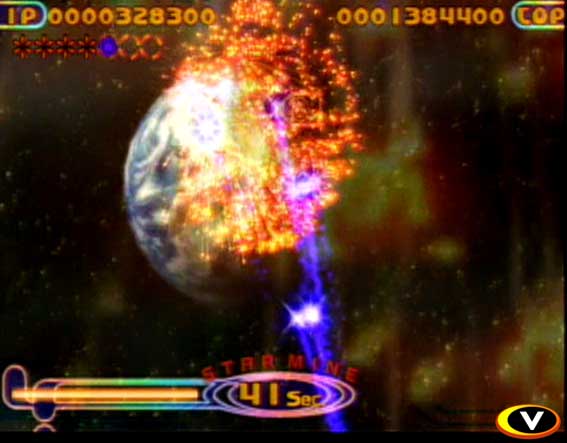

“FANTAVISION” is a trademark of Sony Interactive Entertainment Inc. (C) 2000,2002 Sony Interactive Entertainment Inc.
#Fantavision gif license#
This product was developed by our company under an official license from Sony Interactive Entertainment Inc.
#Fantavision gif download#

#Fantavision gif full#
The rules are very simple, and once you get the hang of it, the game is more addictive than you might imagine!Īn artistic mix of action, shooting, strategy and puzzles!īeautiful graphics with full HD and 4K output "Fantavision", which was initially released on PlayStation2, will return on PlayStation5 in 2023!
#Fantavision gif plus#
So, that guess is totally out of my ass without evidence.īut maybe? Cosmo Machia is a team of 30+ people, so maybe they've already have the Fantavision director on staff for projects we've just never seen credits for? (That's Katsuyuki Kanetaka, who has been out in the wild for decades doing odd jobs and unique projects like Flipnic, the Ape Escape party game Pumped&Primed, the PS Vita Welcome Park, plus consulting on the PSP Ape Academy and Ape Escape TV show, also did some mobile apps Kanetaka left Sony in 2008.) Or maybe it could be that Fantavision was a passion project for somebody there and the studio agreed to try and get the rights for it knowing it was an essentially mothballed brand? Or maybe Cosmo Machia had been approached for or had seen bid requests for PSVR2 projects, and they knew Sony fandom plays might be a savvy strategy for a little studio effort, so they pitched a new Fantavision? (And I guess Sony in that scenario just didn't choose to take on publishing?) Or maybe there was a silent IP auction of SJS brands that didn't make the news, and Cosmo Machia picked up Fantavision?įantavision 202X▼▼▼ That PS2 masterpiece action puzzle game "Fantavision" is back on PS5! ▼▼▼ (The CTO did do some PS1/PS2-era stuff like Gekioh: Shooting King and Strike Gunner STG the studio also have a loose Sony connection in that they made a mobile Aibo robodog virtual pet app.) There's no clear connection or lineage connecting Japan Studio, Fantavision, and Cosmo Machia. except that Cosmo Machia was founded in 2010, and there's no indication on the Cosmo Machia staff role that the chief/founder or its CTO worked on Fantavision or other SCE Japan Studio projects. My first guess for how this came about is that the original Fantavision designer/team went indie, after Japan Studio folded, and sought the rights to continue this franchise, and Sony let it go let them license it on the understanding that Sony itself would never use the brand again at this point. However, many found fault with the length and replay value of its single-player experience when compared to contemporary titles in the puzzle genre.It's an indie game, made by Cosmo Machia. The game received a mostly above-average critical response with reviewers generally praising its visual presentation, core gameplay, and multiplayer. Finally, the game was digitally re-released on Sony's newer consoles via the PlayStation Network outside of Japan beginning in 2015. Fantavision was then remade for Japanese mobile phones starting in 2003.

An updated version with this mode titled Futari no Fantavision was released in Japan in 2002. It was released the same day as the console in North America, Europe, Australia, and New Zealand later that year with an added two-player mode. The graphics emphasize the PS2's ability to show particle effects.įantavision was released in Japan on March 9, 2000, a few days after the PS2 itself.

After successfully pitching the project to Sony, Fantavision was supervised by the company's first-party development head Shuhei Yoshida and was completed by a small team in a short time frame. Located in DATACOMMON.PKG, inside the main font texture (used for menu commands and title cards for stages), there is a hidden PlayStation 2 logo. The game was initially conceived by director Katsuyuki Kanetaka, inspired by the fireworks shows he witnessed in his youth. Fantavision was created during Sony's transition from its original PlayStation (PS1) to its next generation console.


 0 kommentar(er)
0 kommentar(er)
